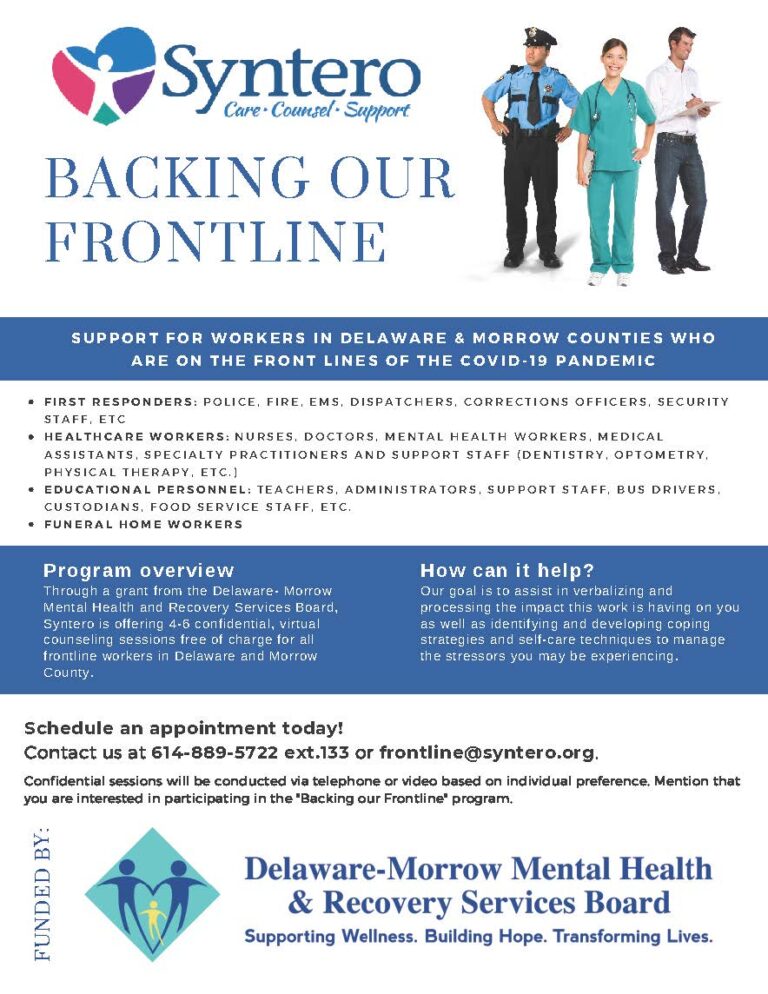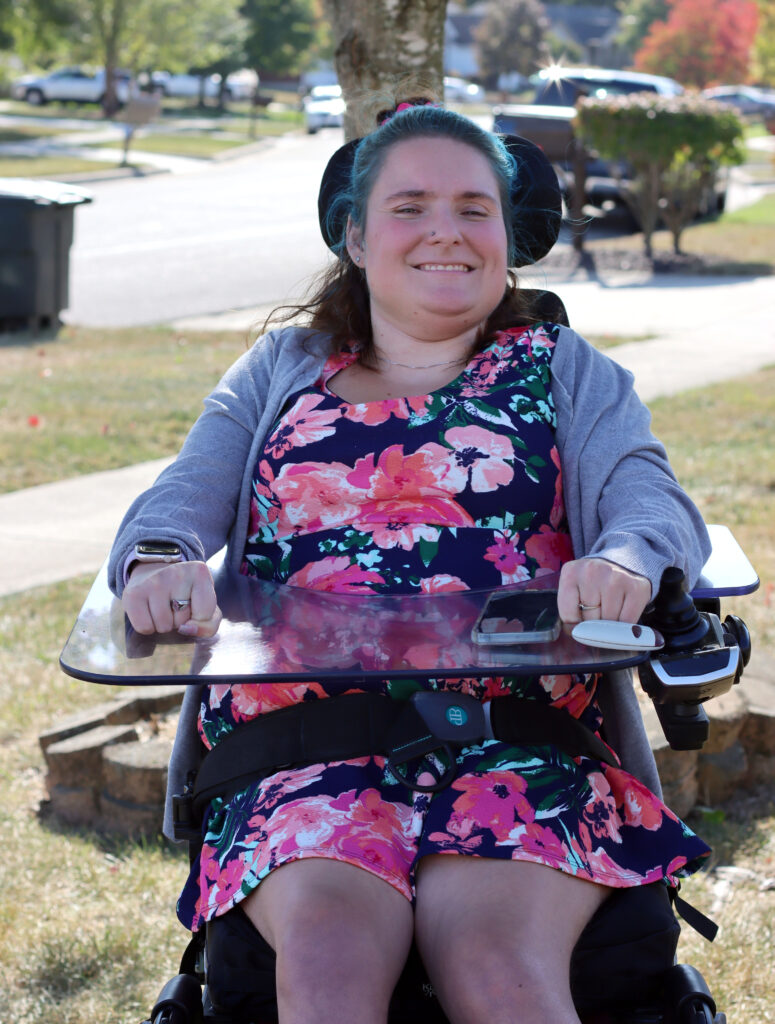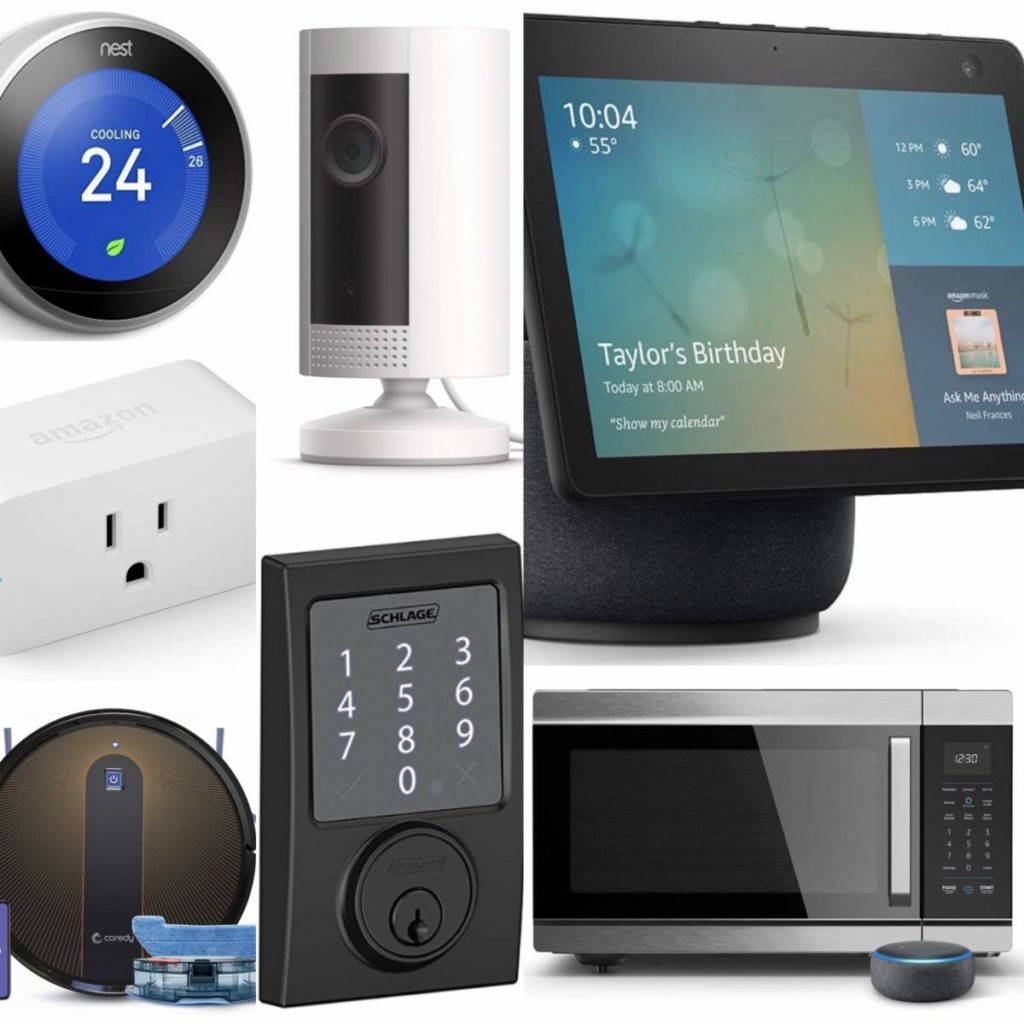DCBDD Updates
Upcoming Board Meetings and Closures
Upcoming Board Meeting:
November 9 at 6:30 p.m.
Background checks are available by appointment only. To schedule, please send an email to BCI@dcbdd.org
Health and Welfare Alerts:
If you are a provider who is interested in receiving emergency alerts from DCBDD, click here to sign up!
To receive health and welfare alerts from DODD, click here
DCBDD to Distribute iBill
We have partnered with the U.S. Treasury Department to be a distributor of the iBill.
Read below to learn more about the iBill and how to acquire one from DCBDD.
DCBDD Incident Reporting Form
An Incident Reporting Form (IRF) must be completed for all MUIs and UIs.
All IRFs for MUIs must be sent to MUI@dcbdd.org by 3pm on the following business day.
Monthly Requirement
- All providers are required to complete monthly UI Logs, which are reviewed by DODD and DCBDD during compliance reviews. Please note, logs must show evidence they were reviewed at least monthly, even when no incidents have occurred. Evidence can be shown by signature and date on the log. Here is a link to a UI Log you can use: DODD UI Log
- DCBDD will request UI Logs from all providers at least once per year. When requested, UI Logs may be mailed to the Delaware County Board of Developmental Disabilities or emailed to UILogReview@dcbdd.org.
Annual Requirement
- By January 31st of each year, all providers shall conduct an in-depth review and analysis of trends and patterns of MUIs occurring during the preceding calendar year and compile an annual report. Providers shall send the annual report to the county board for all programs operated in the county by February 28th of each year.
- Annual MUI reports for Delaware County should be sent to MUI@dcbdd.org. You are required to complete and send this analysis to the County Board even if you do not have any MUIs to report. These forms can be found on our website at the links below:
- Independent Provider- ANNUAL REPORT (dcbdd.org)
- Agency Provider- ANNUAL REPORT (dcbdd.org)
- If you have not provided your annual report to DCBDD for 2022, please send it to MUI@dcbdd.org.
DODD Upcoming Requirements
The Final Copies of the Compliance Review Tools that will be in effect beginning November 1, 2023 are posted.
County Board/COG Teams Link: Compliance Review Forms
Office of Compliance Teams Link: 11-1-2023 Review Tools and Required Docs
DODD Website Link: Compliance Overview
Attached Review Tools:
County Board Accreditation Review Tool 11/1/2023
Ancillary Provider Review Tool 11/1/2023
Independent Provider Compliance Review Tool 11/1/2023
Agency Provider Compliance Review Tool 11/1/2023
ICF/IID Provider Compliance Review Tool 11/1/2023
Attached Required Documents Lists
Agency Provider Required Documents List
Independent Provider Required Documents List
County Board Accreditation Required Documents List
Abuser Registry Updates
- Lori Branham AKA Lori Binder 11/08/1980
- Anthony Pope AKA Anthony Pope Sr. 09/01/1987
- Alisha Jones 05/15/1995
- Janice Harris 06/26/1956
- Rodney Miller 08/18/1974
- Katricia Kendrick 07/16/1974
- Terrance Shambley AKA Terrance A. Shambley 03/30/1979
- Reyon Hammonds 01/26/2000
If you believe these individuals are in your employ or seeking employment with your organization, you should follow published procedures for verifying the applicant/employee is not on the registry. If you have questions regarding this information, please contact the DODD registry unit at: 1-866-313-673.
RAISING AWARENESS ABOUT PROHIBITED SEXUAL RELATIONS
Since 2022, there has been an increase in the number of Prohibited Sexual Relations Major Unusual Incident (MUI) investigations. It is important that all system partners understand what Prohibited Sexual Relations means, how it should be prevented, reported, and investigated. Raising awareness about Prohibited Sexual Relations serves as a protection for those we support and all developmental disabilities (DD) employees.
Prohibited Sexual Relations is defined in the Ohio Administrative Code 5123-17-02 as “An employee engaging in consensual sexual conduct or having consensual sexual contact with an individual who is not the employee’s spouse and for whom the developmental disabilities employee was employed or under contract to provide care or supervise the provision of care at the time of the incident”. This provision has been in the rule for over 20 years. The language was put in place solely to protect individuals.
Prohibited Sexual Relations is an Abuser Registry offense and therefore every DD employee, including department employees, county board of developmental disabilities employees, independent providers and an employee providing specialized services to an individual with a developmental disability, including an entity licensed or certified by the department, can be considered for placement on the Abuser Registry if found to have committed this offense. If your name is placed on the registry you are barred from employment as a DD employee in the state of Ohio.
Investigations into allegations of sexual assault or sexual activity are extremely complicated, no matter the circumstances. The issues are challenging, and the investigations involve questions of consent, undue influence, power dynamics, etc. We don’t want to insert our subjective judgment into these relationships. Every individual with disabilities in Ohio has different physical and cognitive abilities. Some individuals can be easily persuaded or influenced, some are unable to truly advocate for themselves, and others are unable to communicate at all.
It is impossible to know if an individual has been influenced, threatened, or just confused about their relationship with their provider, as a sexual relationship can blur the lines for an individual.
After considering this from all angles, the Department determined that the only way to effectively prevent this problem was by implementing a bright line rule prohibiting sexual relationships between unmarried individuals and their providers, no matter the situation. There is no discretion to waive this rule.
Some of the causes and contributing factors in recent Prohibited Sexual Relations MUIs include:
- Lack of professional boundaries.
- The person had a previous sexual relationship and asked the agency to hire their live in partner to provide home maker personal care supports for them.
- The agency lacks a professional code of conduct.
- The Service and Support Administrator was new and thought hiring the person’s friend, in which they were sexually intimate, would help with the staffing shortage.
- The provider did not recognize that the relationship was sexual despite multiple indicators.
- The independent provider believed that they could engage in consensual sexual relations with the individual because it was outside their scheduled hours.
- The Service and Support Administrator believed that the individual could consent because they do not have an intellectual disability.
It is important that providers and Service and Support Administrators know that this type of relations is not permissible under any circumstance. Once identified, the situation must be reported, and the paid caregiver relationship discontinued. A MUI for Prohibited Sexual Relations will be filed and investigated by a certified IA/ICF using the following incident specific requirements.
Incident Specific Requirements – Prohibited Sexual Relations
- Describe and document the type of sexual conduct or contact.
- Document whether or not the incident was consensual. (Note: consent does not excuse sexual contact by a caregiver with an individual when the caregiver is paid to care for the individual.).
- Verify and document that the primary person involved was providing paid care to the individual.
- Verify and document that the primary person involved was not married to the individual.
- Provide a statement of any known, long-term, personal relationship the primary person involved has with the individual or other circumstances relevant to the sexual contact or conduct.
Frequently Asked Questions:
- If the individual had a consensual sexual relationship with the person prior to that person becoming their paid service provider, is this allowable? No, this is prohibited.
Is it permissible for a paid provider to engage in consensual sexual relationship when they are “off the clock”? No, this is not permissible.
DODD Shares Documentation Templates
DODD has created service delivery documentation templates for providers who deliver shared living, homemaker personal care, and transportation. Providers do not have to use these templates. They are intended to be a resource to help providers document all the required elements in the service rules. You can find the forms here.
Templates for additional services will be shared in the upcoming months.
Questions?
Email Compliance@dodd.ohio.gov.
Community Resource Feature
Support for Front Line Workers
Delaware-Morrow Mental Health & Recovery Services Board are offering support for front line workers. This includes first responders, healthcare workers, educational personal and funeral home workers.
To schedule an appointment call 614-889-5722 ext. 133 or frontline@syntero.org

Assistive Technology Library
Interested in trying assistive technology to see if it meets your needs? Borrow a device from the DCBDD Assistive Technology Lending Library! Our current inventory includes:
- Echo Show
- Echo Dot
- Ring Video Doorbell
- Smart Plug
- Wyze Camera
- Electronic Reading Aid
- Miku Monitor
- Schlage Electronic Deadbolt
- Clip Different
To borrow a device, review the following documents and submit the request to AssistiveTechnology@dcbdd.org.
Community Events
2023 ID/DD Summit
The OHCA ID/DD Summit will take place November 13-14, 2023, at the Renaissance Hotel in Westerville, close to Polaris.
The Summit will feature a half day of education on Monday, November 13, and a full day on Tuesday, November 14. Register Now! The program will feature sessions on important topics impacting DD providers (Residential Waiver, Day/Employment and ICF), including:
- DODD Hot Topics
- Emotional Self-Care for Burnout in the Helping Professions
- Recognizing and Addressing Burnout, Mental Illness & SUD in Direct Care Staff
- MUI Patterns, Trends and Other Updates
- Compliance Reviews and Surveys
Featured Speakers Include:
- Kim Hauck, Director of the Ohio Department of Developmental Disabilities
- Lara Palay, Aldridge Palay
- Scott Phillips, DODD Deputy Director
- Kristi Black, CEO 19 Services
- Heida Hill, Compliance/QA Director, 19 Services
Featuring:
8.5CE credits for Ohio NHAs, Ohio CPAs, Nurses and CEHCH
Expert speakers with experience with Ohio’s DD system
Registration Fees:
Members:
Before October 30, $215
October 30 and after, $255
Non Members:
Before October 30, $329
October 30 and after, $379
OCALICON
|
Nov. 14-17th OCALICON, the premier autism and disabilities conference, began in 2007, and continues to bring together a cross-section of professionals and parents who utilize a variety of products and services at home, work, and in the community. The conference offers sessions which target a range of disabilities including autism spectrum disorder, deaf/hard of hearing, blind/visual impairments and other low-incidence disabilities. Register here https://conference.ocali.org/register |
Sign up to receive DODD newsletters!
- Pipeline
- DSP Connection
- Family Connection
- Director’s Corner
- Tech First and more!
Sign up here: https://bit.ly/3DOll9C
Trainings
Behavior Support Workshops
Join us to continue the learning with questions, answers, and scenarios to increase understanding of the rule updates and support people with complex behavioral health needs. In November, we will be using Zoom with better features for attachments in the chat and breakout rooms for discussions on how to support people on their worst day.
No registration is necessary, just click the link to join.
There will be training on OhioRISE MRSS (Mobile Response Services Stabilization) which will be recorded.
Statewide Behavior Support Workshop November 7, 2023, 11 AM-12:30 PM
Meeting ID: 161 638 0873 Passcode: 822805
Or call in (audio only) Meeting ID: 161 638 0873
- +1 646 828 7666 US (New York)
- +1 646 964 1167 US (US Spanish Line)
There will be no workshop in December 2023.
The dates and times for upcoming workshops will be posted on Behavioral Support Workshops on our Behavioral Support webpage.
Have questions? Reach out to behavior.support@dodd.ohio.gov. We are continuing to have RMN Data Office Hours and are adding additional dates/times. Please click RMN consults to sign up for a 30-minute consult.
DSP and Provider Support Open Door Sessions Changes Schedule
Open Door Sessions are a time for providers, direct support professionals, and county board provider support staff to come together with DODD staff to network, brainstorm, and discuss issues related to the support of providers and direct support professionals.
The sessions were previously held on the 2nd and 4th Wednesdays of the month. Due to low participation, the session held at 4 PM on the 4th Wednesday of the month is being canceled.
Please join us for the DSP & Provider Support Open Door Session the 2nd Wednesday of each month from 9 – 10 AM.
Delaware Woman Hits the Ground Rolling to Serve Others

Words and photos by Olivia Minnier
After entering through the doorway at the Delaware County Board of Developmental Disabilities, past the photo of smiling children and the reception area on the first floor, visitors might hear the whizz of a powered wheelchair. They might see a streak of brightly colored hair tied up in space buns or hear a boisterous laugh echoing from a corner office. If so, that can only mean one thing: the outreach advocate is in the office.
Courtney Hines, 29, DCBDD’s Outreach Advocate said she originally aspired to be a receptionist after graduating from Rutherford B. Hayes High School.
After holding receptionist jobs at her former high school and with The Alpha Group, she came to DCBDD originally just seeking more hours.
“I started to realize I was capable of a lot more than even what I thought I was,” she said.
After being a receptionist for a few years with DCBDD and once the COVID-19 pandemic hit in 2020, she realized she was truly done with being a receptionist.
Then, Courtney applied for DCBDD’s Outreach Advocate position in 2021, thinking the position would give her the ability to grow.
“As I started to do more in the role and get my feet wet, I realized I could go to school and get my degree and become a social worker and help people with disabilities more in-depth,” she said.
Growing up in Delaware with her parents and older sister, Courtney said she never felt like she could not achieve whatever she wanted to do in life.
“I give my family a lot of credit because they never treated me any differently than anybody else. They said ‘You’re going to do this, you’re going to get a job and live your life as typically as possible.’”
She also said she gives the people that she worked with at Rutherford B. Hayes High School a lot of credit for giving her tangible job experience and encouraging her to do volunteer work while still a high school student.
“I worked in the school office, so I got to get a lot of experience,” she said.
As a student, Courtney said she was very included in the community all the way through school and never felt different. She has positive memories of hanging out with her friends and being Homecoming Queen.
“I enjoyed my high school experience, but unfortunately, a lot of people with disabilities don’t always have that and that makes me sad. Everyone deserves a good high school experience,” she said.
Courtney said it hasn’t always been incredibly easy and there have been times in the past where she wishes she could be more normal.
Courtney said both these positive and negative experiences have been what motivates her to help others as she continues forward in her career and life. Additionally, she said the Outreach Advocate position has made her realize her own power and agency.
“The Outreach Advocate position kind of forced me to realize I could do a lot more,” she said.
Courtney is putting that power to use and is currently in college working on a bachelor’s degree in social work at Ohio State Marion while working in her advocacy role at DCBDD. She said after graduation she wants to work for DCBDD as a full-time Service and Support Administrator.
She also wants to live life with a partner one day, get married, and have children.
“I have a disability but that doesn’t mean that I don’t want what everybody else wants.”1

